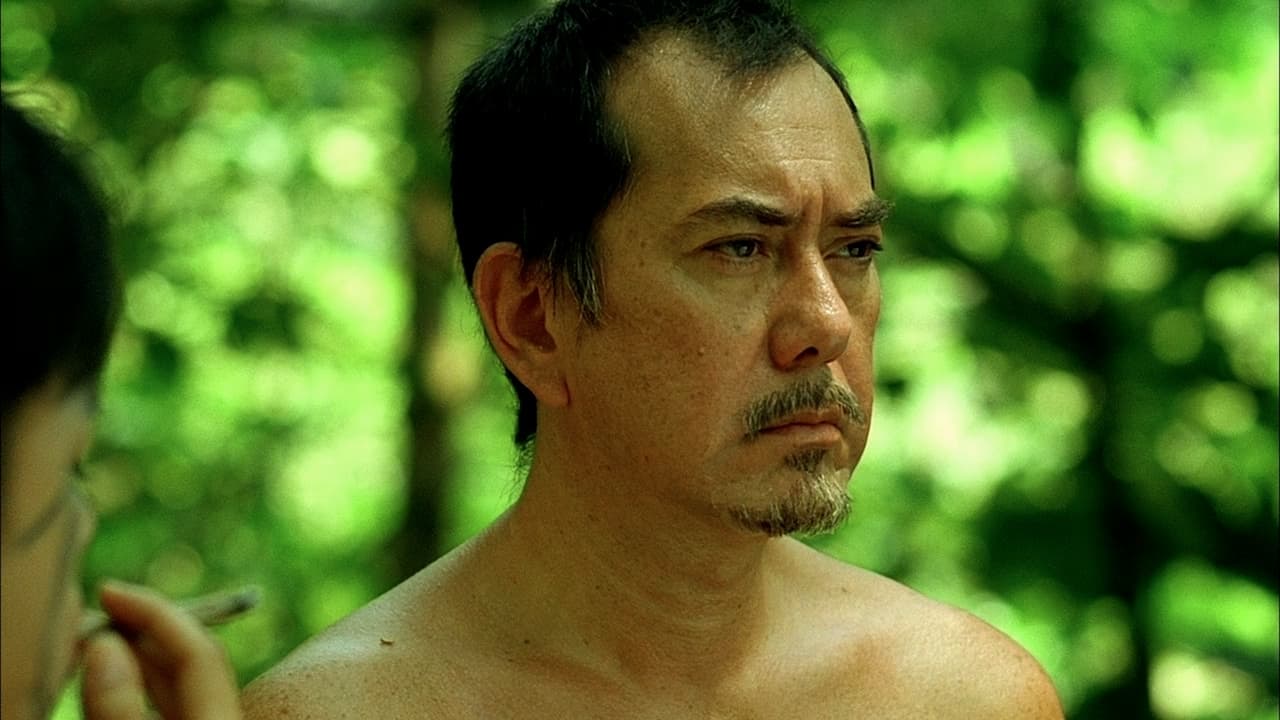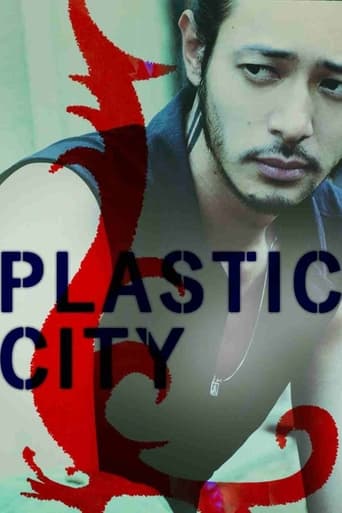Diagonaldi
Very well executed
Afouotos
Although it has its amusing moments, in eneral the plot does not convince.
Maidexpl
Entertaining from beginning to end, it maintains the spirit of the franchise while establishing it's own seal with a fun cast
Tyreece Hulme
One of the best movies of the year! Incredible from the beginning to the end.
Claudio Carvalho
In 1984, in Oiapoque in the north border of Brazil, the Chinese Choi Chi Leung a.k.a. Yuda (Anthony Wong Chau-Sang) rescues the orphan boy Kirin from the jungle. In 2008, in Liberdade, São Paulo, Yuda is a powerful smuggler that supplies with Kirin (Jô Odagiri) pirated goods to the street vendors. The corrupt politician Daniel Carvalho and the Chief of Police Coelho (Antônio Petrin) invite Yuda to have lunch with them and they tell Yuda that they will make a raid on two or three trucks and shopping centers of his own to satisfy the media in times of globalization. Further, they arrest Yuda and his henchman Inácio goes with Yuda to protect him. Sooner, Yuda and Kirin learn that their empire is in danger, threatened by the mobster Mr.Taiwan and his gang that wants to take their business. "Dangkou" a.k.a. "Plastic City - Cidade de Plástico" is a film with a stylish cinematography but a pointless and messy story. The director Nelson Yu Lik-wai has a plot with great potential, but unfortunately he goes nowhere and waste what could have been a great movie. The film show the problem of piracy on the streets of São Paulo; corrupt politicians and policemen; violence on the streets; fight of gangs; but in a shallow way, without any depth. There are characters that are simply forgotten, like Kirin's girlfriend, the sexy stripper of the night-club. There are also ellipsis and lack of continuity in many sequences. My vote is four.Title (Brazil): "Plastic City - Cidade de Plástico"
DICK STEEL
Shot mostly in Brazil and against a blue/green screen, Plastic City had all the trappings of a classic gangster flick. After all, it has Hong Kong veteran Anthony Wong whom we all know can go crazy if the role calls for it, and Japan's Jo Odagiri who is more than just your pretty boy actor as showcased through his range of characters in his filmography. Unfortunately, under the rookie directorship of Yu Lik-Wai, this city became too sprawling a convoluted mess of half-baked ideas and ambitious presentation that fell flat on its face.Supposedly, it tells the story of two Brazilian-Chinese guys - Kirin (Odagiri) and his "father" Yuda (Wong), who owns an established underground empire built on counterfeit goods. Naturally their clientèle are the have-nots who want to have, and their influence extend until the corrupt politicians in scratching each other's backs. For instance, one of the rare examples of a fun scene here involved a senior politician wanting to look good to his electorate, waging war on fake products, only to have the duo's men arrested and immediately let go behind closed doors, as agreed under the table.Sadly the film turned out to be more flashy and with more style than substance. Suffice to say Yuda got into trouble, and Kirin takes over the family business while plotting to bust Yuda out. Throw in some unbelievable romantic elements to introduce some classic flower vase roles such as Yi Huang's Ocho, whom Kirin tries to get it on with in Yuda's absence.Many scenes don't make too much sense because they're presented in a non-linear manner, and the danger here is of course no clear demarcation when a drift in timeline happens, which Yu Lik-wai lapses into time and time again. He also seemed to have found a lot more glee in crafting highly charged and stylized action, rather than dig deeper into the motivations of the characters, or sticking to basic storytelling 101 - do not seek to confuse your audience.Containing many stock images to highlight the seedy underbelly of Sao Paolo, and sometimes the more touristy type images of what Brazil can offer, the presentation is mostly in darkened hues to accentuate the dark side of life that the characters reside in. Speaking mostly in Portuguese, something a lot more irritating here was having to observe the voices being dubbed over, since lip movement and what's being heard seldom gel. Those who cannot stand their audio being out-of-sync, would know what I mean here, with that being the constant, distracting thorn.The only saving grace here is the eclectic, trance inducing soundtrack, which of course is never enough to mask the stench of a stinking story nor to cover up the shortcomings of a rookie helmer. Only for die-hard fans of Anthony Wong or Jo Odagiri who don't mind giving Yu Lik-Wai a go and a chance.
samuelding85
First time movie director Nelson Yu Lik Wai gave his very best shot with his full length feature, Plastic City. With his very best shot, he tried various style of presenting the story. Evenntually, it lead everyone lost in nowhere, which happens to be the opening scene for the movie.Anthony Wong and Jo Odagiri plays Yuda and Kirin, both were fugitives survived from the guns of Brazilian mercenaries. Set in the modern day Brazil, Yuda owns an counterfeit goods empire, which specializes in counterfeit products and pirated DVDs. Kirin, the godson of Yuda, believes in the philosophy of 'earning real money through selling fake goods'. When Yuda was arrested for manufacturing and distribution of counterfeit goods, Kirin took over the business. Using money and relationships with the military, Kirin pulls Yuda out of the trouble with the law.Facing the pressure from the police, Yuda abandons his business and starts a new life. On the other hand, Kirin lost his buddies in a gang fight and his girlfriend left him after the fight. He embarks a journey to look for Yuda.Being a new director, Nelson Yu was given the opportunity to film Plastic City in Brazil, with the support from various film commissions from Brazil. However, we do not get the very best out of the movie.In some way, Plastic City is a combination of City of God, Lower City, 300 and South Park. Extract the gangsterism from City of God, add in a touch of sexuality from Lower City, blend in some CGI battle scenes from 300 and glazed it with the social issues discussed in South Park. The final product: Plastic City.Plastic City tried to discuss issue on gangsterism from Lower City, and it barely covers all. The sleaziness from the strip clubs barely shows the link to the story. Gang fights were shot on blue screen, filled with plenty of CGI effects which looks exactly like what one would have seen from 300. Poverty, high crime rates in Brazil and the corrupted government add a little touch to the story.There is no flow in the storyline, which is hard to swallow. Storyline without any connection and linkage worsens the overall feature of the film. To make it more confusing, scenes were presented in some flashbacks, and a bit of MTV style presentation.Anthony Wong and Jo Odagiri uses Portuguese for most of their lines, which unfortunately, were performed by the professional dubbing artists. With more than 60 percent of dialog in Portuguese, one can easily spot the movement on the lips failed to match with what was heard. This is a letdown to the audience as one would expect their lines to sound as original as possible.In overall, Plastic City is only worth watching when you are left with nothing but plenty of F-graded rubbish around you, since you can't go wrong with the acting skills of the two professional actors.
dumsumdumfai
heck of a movie - in that I was not sure in the beginning. very not sure.the story started off as kind of immigrant vs local kind of power vs new Tawain struggle. Immagrant being Yuda and 1/2 son. It's set in Brasil with Chinese immigrants. i got restless because each scene was so short.. hard to get into the story. turns out story is a facet to the underlying meaning of changing tides and changing world (under). Towards the end, a more symbolic approach takes hold and solidifies the message.Each scene/shot set-up is meticulous to say the least. flawless light play and lighting. too bad didn't stayed for Q&A. I had question about the tattoo; the chop off arm; the white tiger; the Buddhist saying, and the ending sequence.**spoiler** the ending sequence of chopping of a branch from a tree seems to say the old man do the work, hands the working knife to the next generation. And for the next generation to take over, it must kill the old ? But I can't see a regular audience can sit through this. solid effort though.

